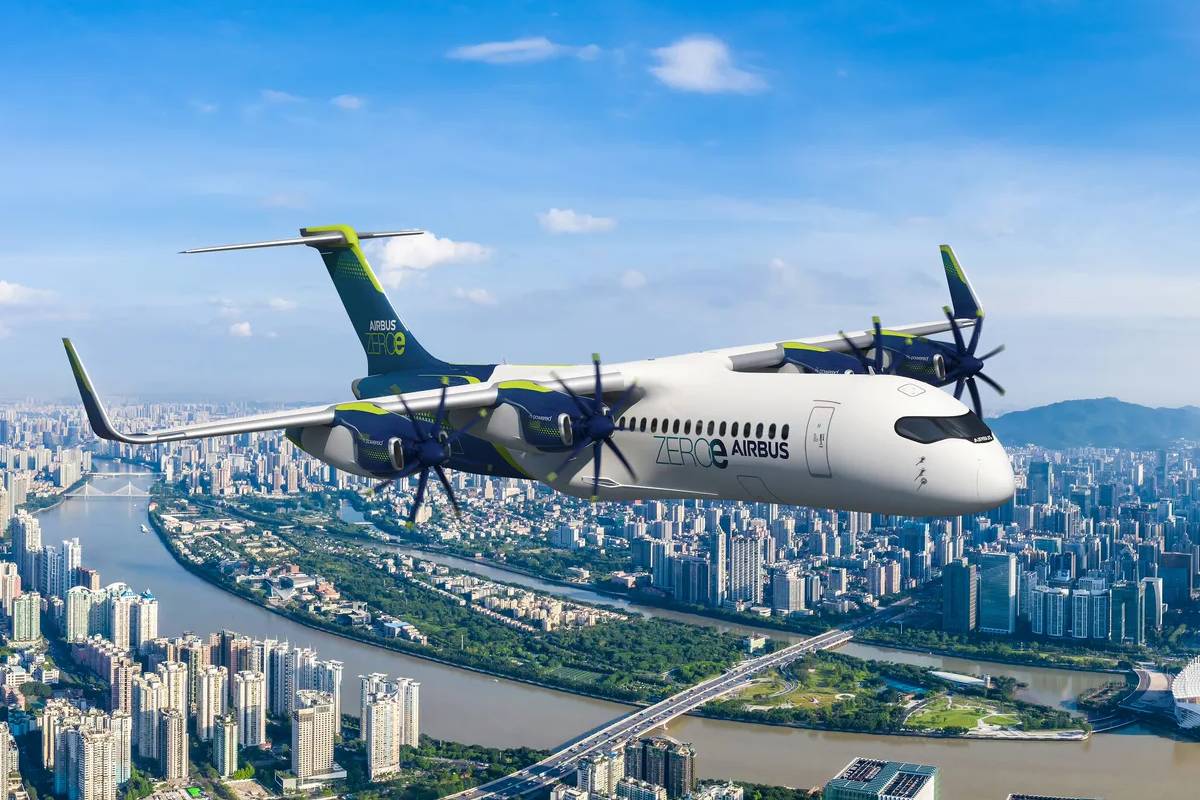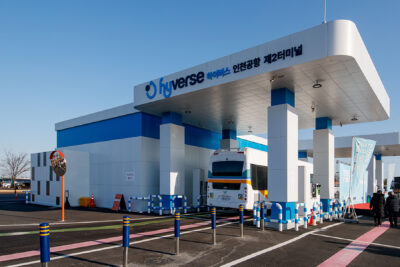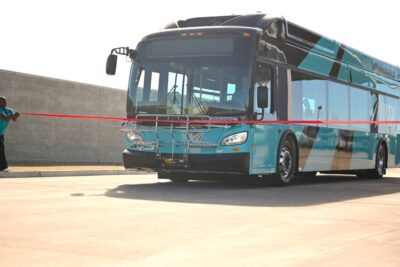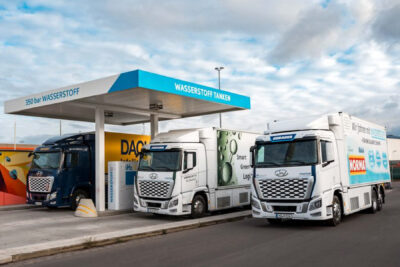Airbus presents hydrogen aircraft technologies at Airbus Summit
Although Airbus’ timetable for hydrogen aircraft is likely to be delayed, the Group presented its revised ZEROe project plan for the further development of hydrogen-powered flight technologies at the Airbus Summit. Notably, these technologies were presented as part of a new concept for a hydrogen aircraft powered by four 2-megawatt electric engines. Each engine is powered by a fuel cell system, with the four FC systems drawing liquid hydrogen from two tanks. This concept is to be further refined in the coming years.
At the beginning of last year, Airbus announced the completion of its first 1.2-megawatt hydrogen fuel cell system for a planned concept aircraft. This was intended to be ready for commercial flight by 2035, with the first test flight planned for 2026. This date now has been officially shifted to “the second half of the 2030s.” In addition, Airbus wrote: “Integrated ground testing is planned for 2027 at the Electric Aircraft System Test House in Munich, combining the propulsive bench and hydrogen distribution system for comprehensive system validation.”
Airbus Head of the ZEROe Project, Glenn Llewellyn explained how the development process has been going: “Over the last five years, we have explored multiple hydrogen-propulsion concepts, before down-selecting this fully electric concept. We are confident it could provide the necessary power density for a hydrogen-powered commercial aircraft and could evolve as we mature the technology.” He further explained that Airbus intends to concentrate on advancing the storage, distribution and propulsion systems in the next years, while also advocating for the regulatory framework to ensure that these aircraft can take to the air.
“Hydrogen is at the heart of our commitment to decarbonise aviation. While we’ve adjusted our roadmap, our dedication to hydrogen-powered flight is unwavering,” explained Airbus Head of Future Programmes, Bruno Fichefeux, adding: “Just as we saw in the automotive sector, fully electric aircraft powered by hydrogen fuel cells have the potential in the longer term to revolutionise air transport for the better, complementing the sustainable aviation fuel pathway.”
Last month, Airbus had not only announced the delay of its hydrogen aviation project, but also paused its air taxi development project. This project focused on smaller, battery-electric aircraft which would ferry passengers, which is an area where several startups have recently gone bankrupt, including Lilium and Volocopter, which was recently purchased by Diamond Aircraft. On the other hand, in China, Ehang, JAC Motors and Guoxian just launched an eVTOL joint venture, while Joby and Virgin Atlantic announced a partnership in the field.
Airbus is also involved in several projects surrounding fuel cell aviation with multiple partners, including the Hydrogen in Aviation alliance, or a 2023 project with BMW and Quantinuum to improve fuel cell catalysts, which was launched just a few months after a project with STMicroelectronics to develop power electronics. Together with Linde, Airbus signed an MoU in 2022 to start introducing hydrogen infrastructure at airports.





0 Comments